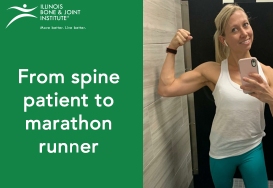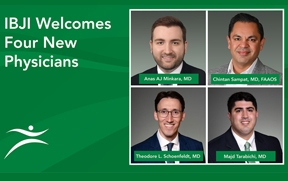
Scoliosis affects an estimated six to nine million people, including mild forms without symptoms or pain.1 Early diagnosis and treatment of scoliosis can help children, adolescents and adults maintain an active lifestyle. Treatment options can vary depending on the type and severity, ranging from simple observation, physical therapy, bracing, or surgery.
Adolescent idiopathic scoliosis is the most common form and is usually diagnosed during puberty. Early intervention from a skilled orthopedic surgeon is key in slowing the progression of scoliosis.
Living with Scoliosis
A scoliosis diagnosis can be alarming and stressful at first. Learning how the condition affects you or your child’s body can help you understand treatment options, and participate in the required treatment plan. Many individuals with scoliosis live an active lifestyle without limitations. Children can continue to run and play as they did before the diagnosis. Physical activity is beneficial for most scoliosis patients. Exercise strengthens muscles and most importantly the core muscles, which helps stabilize the spine.
Bracing is an effective tool in the treatment of children and teens. Braces have come a long way over the years, and are now lightweight, fitted, and barely visible underneath clothing. Patients wearing a brace can move freely and enjoy an active lifestyle.
Children with mild scoliosis may only require an examination periodically throughout adolescence. Generally, adults with scoliosis require X-rays every few years, unless symptoms worsen. Those with significant symptoms that have not responded to non-surgical treatments may benefit from surgery. When needed, scoliosis surgery can be beneficial in reducing spine curvatures.
Living with scoliosis doesn’t mean that you or your loved one’s lifestyle will be majorly impacted. Most children and adolescents continue to live a normal active lifestyle. Routine visits with an orthopedic surgeon, and following an individualized treatment plan, can help slow progression and maximize patient outcomes.
The pediatric orthopedic specialists at Illinois Bone and Joint Institute treat children and teens with quality and compassionate orthopedic care. Our goal is to help you and your loved ones live an active, healthy lifestyle.
Albert Knuth, MD is a board-certified orthopedic surgeon with fellowship training in pediatric orthopedic surgery. Dr. Knuth specializes in pediatric orthopedics, limb lengthening, club foot, scoliosis, hip dysplasia, sports injuries, and reconstructive surgery.




